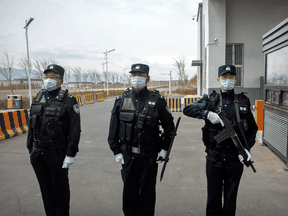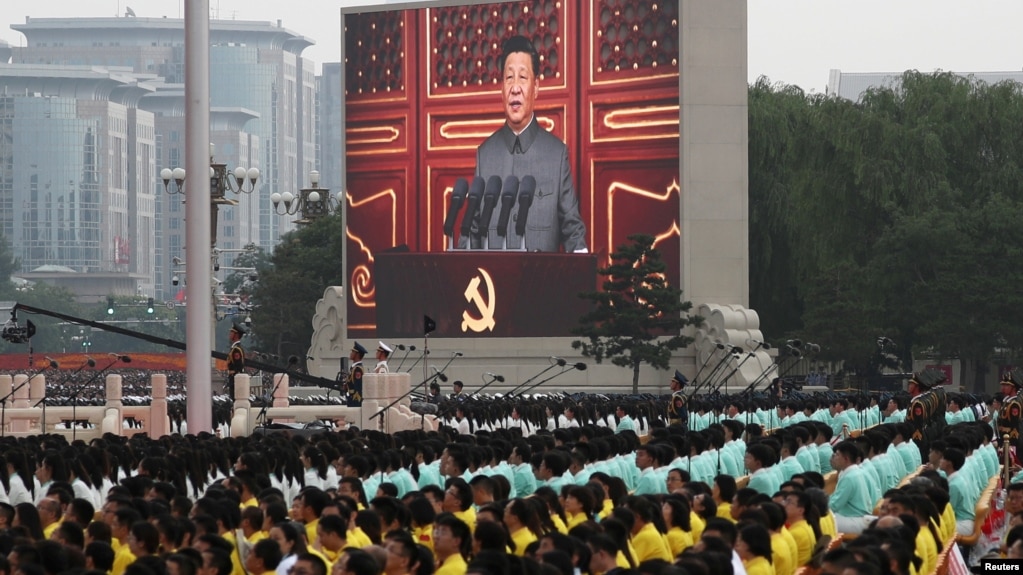 |
| Protesters gather on Parliament Hill to demonstrate against vaccine mandates, on Saturday. (Alexander Behne/CBC) |
"[It left me] sickened to see protesters dance on the Tomb of the Unknown Soldier and desecrate the National War Memorial."
"Generations of Canadians have fought and died for our rights, including free speech, but not this."
"Those involved should hang their heads in shame."
Chief of the Defence Staff General Wayne Eyre
"Whether by blocked access, failure to follow COVID-19 public health measures, ear-shattering noise at all hours, extreme pollution, public urination and defecation, or sexist, homophobic and racist actions and taunts, our members and our communities have been put at risk."
"The decisions that allowed this situation to emerge must now be reversed and should be subject to scrutiny in the days ahead."
The Civic Institute of Professional Personnel
"Right now, we're in a bit of an accordion effect where we're letting people out [leaving Ottawa to return to their homes across Canada] and trying not to let people in so we have as clear an inner zone [around the city centre and Parliament Hill] as possible."
"[The Ottawa Police Service launched] several criminal investigations [into the] desecration [of the National War Memorial and Terry Fox statue along with] threatening/illegal/intimidating behaviour [to police officers, city workers and others by protesters]."
Chief Peter Sloly, Ottawa Police Services
"We are not leaving until all of you and all of your kids are free."
"We're not leaving until you can open up your business. We're not leaving until you can hug your best friend."
"We're not leaving until you can go see your parents at a long-term care facility."
Tamara Lich, a Truck Convoy organizer
 |
| Gridlocked traffic extends east for at least 1.6
km on Sussex Drive from Wellington Street late on the afternoon of
Sunday, January 30, 2022. Photo by Gerry NOTT / POSTMEDIA NEWS |
When truckers began organizing a country-wide protest against the Liberal government's latest COVID mandate that all truckers must without exception be vaccinated before they would be allowed to drive across the Canada-U.S. border delivering food and other essential goods, it seemed like a reasonable enough enterprise. To let the federal government know how absurd a demand that was; enforcing a government diktat against the right of the individual to make personal decisions affecting their own bodies.
The Liberal government of Justin Trudeau was, in effect, echoing the Biden Administration's edict that all truckers must be vaccinated and have proof of full vaccination before they would be permitted to enter the United States. In point of fact, Canadian truckers have an extremely high inoculation rate, around 90 percent. American truckers, on the other hand, have a 50 percent vaccination rate.
The mandate affecting Canadian truckers targeting that unvaccinated ten percent, effectively putting them out of employment, comes at a time of insufficient truck drivers to move critical products from one end of the country to the other, effectively taking trucks and drivers off the road already impacted by adverse weather conditions, rising prices and slow-moving production and distribution chains. In short, a nonsensical move by government.
And so a date was set for truckers to begin moving convoys across the country with the intention of a large contingent and their supporters driving to Ontario from British Columbia, Alberta, and all stops in between, across to Nova Scotia, New Brunswick and Quebec, converging on Ottawa for the purpose of conveyin their collective displeasure. A kind of wildcat action, since the Canadian Truckers Association disagreed with the move.
And then, as the movement picked up steam, radical elements within the leadership declared their intention to remove the Liberal government from administering the affairs of the country, and to have all coronavirus mandates, federal and provincial, revoked immediately. Concerns began to be expressed that the truckers' rally would attract outlier fringe elements, white supremacists, racists. In the meanwhile, a GoFundMe account was set up to help fund costs the truckers would ring up; gasoline, food, hostelry.
"Earlier today, our staff and volunteers experienced harassment from convoy protesters seeking meals from our soup kitchen."
"The individuals were given meals to defuse the conflict. Management was then informed of the issue and no further meals were given to protesters. Our soup kitchen is committed to providing meals to people experiencing and at risk of homelessness in Ottawa."
"This weekend's events have caused significant strain to our operations at an already difficult time."
"Since then [declaration of a State of Emergency on Housing and Homelessness in Ottawa], we have battled an unprecedented global pandemic. We have lost many community members due to the toxic overdose crisis. Our staff are beyond exhausted. We are so proud of how they have weathered the events of this weekend, as they weather all things, with courage and compassion."
"It was a very difficult day for them [staff]. The disruptions were many. They re working hard, they are tired and we are short-staffed. When people are taking away their ability to provide services to many of the most vulnerable people in the city, it is very discouraging. It was a really tough day all around [Saturday, the first day of the Truck Convoy's presence]."
Deidre Freiheit, manager, Shepherds of Good Hope charity, Ottawa
Members of the "Freedom Convoy" invaded the premises of the charity, demanding to be fed. They harassed staff and their homeless clients. On one occasion one of the homeless people at the shelter was physically attacked by protesters. Many who might have supported their cause even marginally now view them with utter distaste; they destroyed their own mission of alerting government to popular dissatisfaction of rigorous and sometimes seen as unnecessary pandemic strictures on freedom.
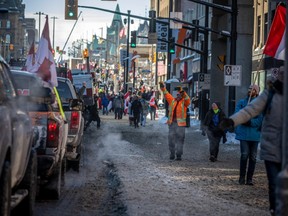 |
| Streets and sidewalks Sunday continued to be
choked in downtown Ottawa, but police say they are helping people who
want to exit the city after Freedom Convoy events this weekend. Photo by ASHLEY FRASER, POSTMEDIA NEWS |
Another organizer of the truckers' rally said the plan is to remain in Ottawa until all COVID-19 public health measures are eliminated and the Liberal Party is "resigned, gone and abolished. We're going to stay as long as it takes", said Patrick King. As for reports that Ottawa Police are working to get people and vehicles out of downtown Ottawa, he responded: "We got contingency plans in place for that."
A rally, with popular support, which was able to raise $9-million from the public to financially support a cause many Canadians were in sympathy with, turned into wild street parties. Where the Tomb of the Unknown Soldier was trampled by people with the truckers' rally, and a woman danced on the tomb while others around her were drinking. The memorial statue of Terry Fox, a true Canadian hero, running across Canada on an artificial limb from bone cancer to raise funds and then dying when his cancer returned, was draped with an upside-down Canadian flag and a sign reading 'Mandate Freedom'.
Residents of nearby streets were kept awake at night by incessant horns, loud music, they were accosted by strangers shouting profanities and racial slurs. People were urinating and defecating in the public arena; obviously, the truck convoy 'organizers' hadn't dealt with such insignificant details as public toilets, accommodation, food availability. Protesters entering private businesses asking them to wear masks taunted the owners.
Countless downtown streets were cordoned off. Truckers' rigs were parked on streets blocking off access to travellers. Everywhere was chaos, with the Ottawa Police Service, the Ontario Provincial Police attempting to maintain a modicum of order and safety for residents and protesters alike. This was not an event to be proud of. Unless uncouth behaviour, mockery of law and order and gross civil disobedience is your cup of tea. Fascist armbands of Swastikas and Confederate flags do not inspire confidence.
 |
Supporters of the "Freedom Convoy" rallied outside Canada's Parliament in Ottawa over the weekend Getty Images
|
Labels: Canada, COVID-19 Protesters, Ottawa Invasion, Truckers' Rally







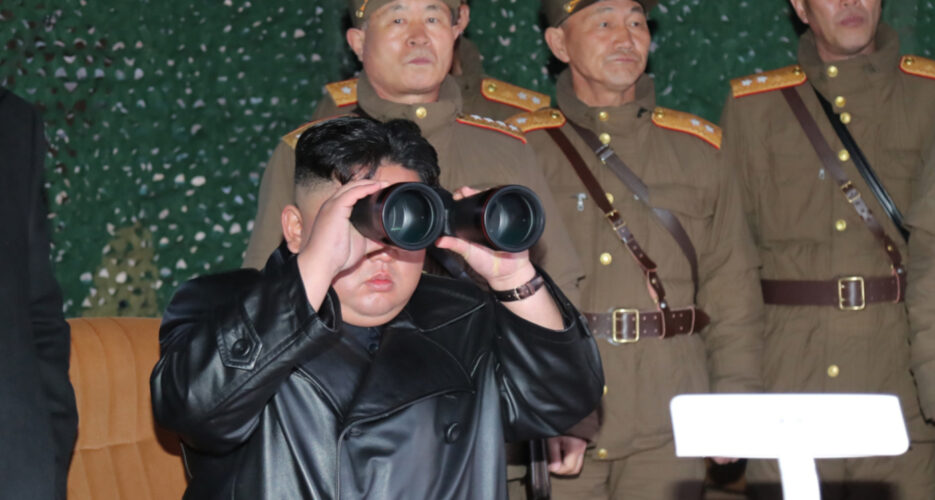

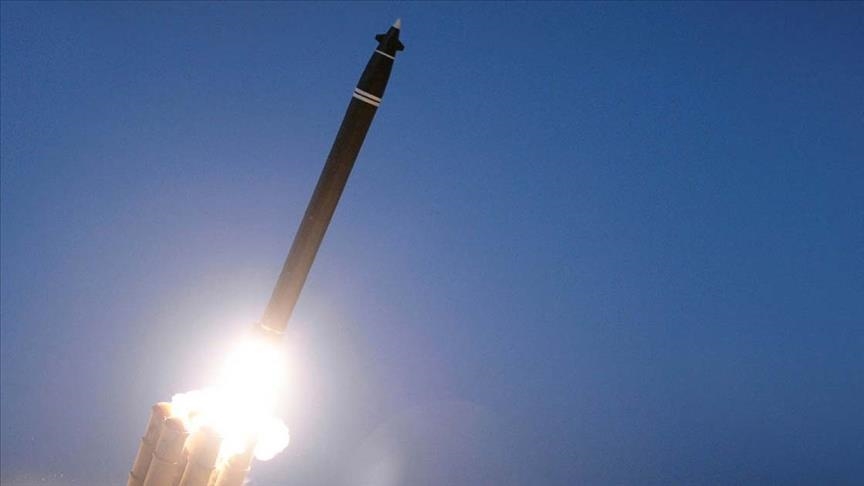
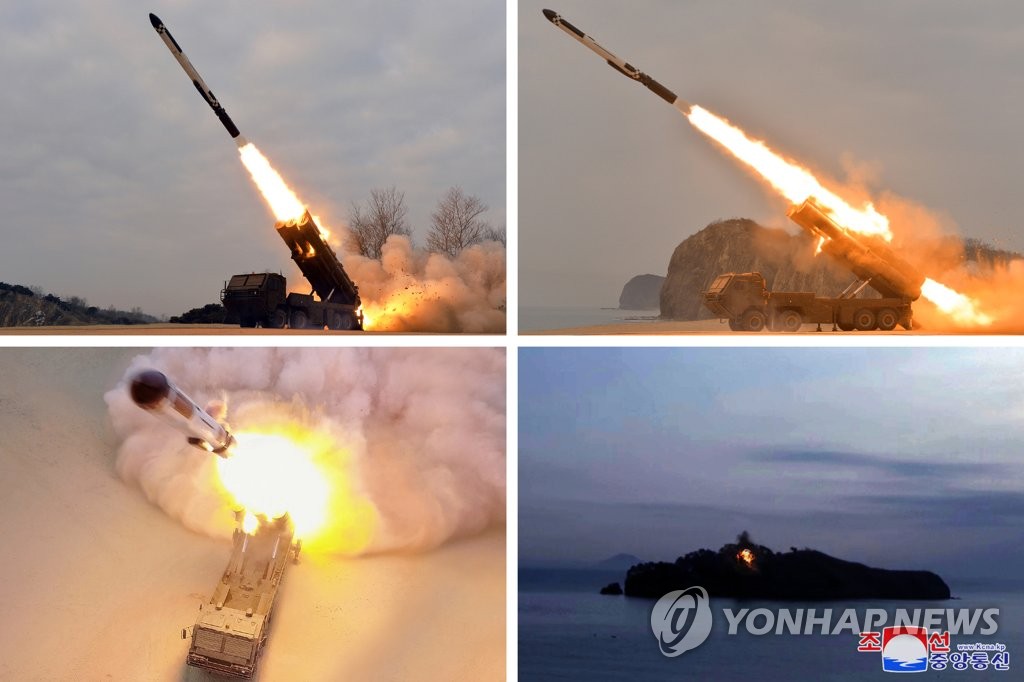

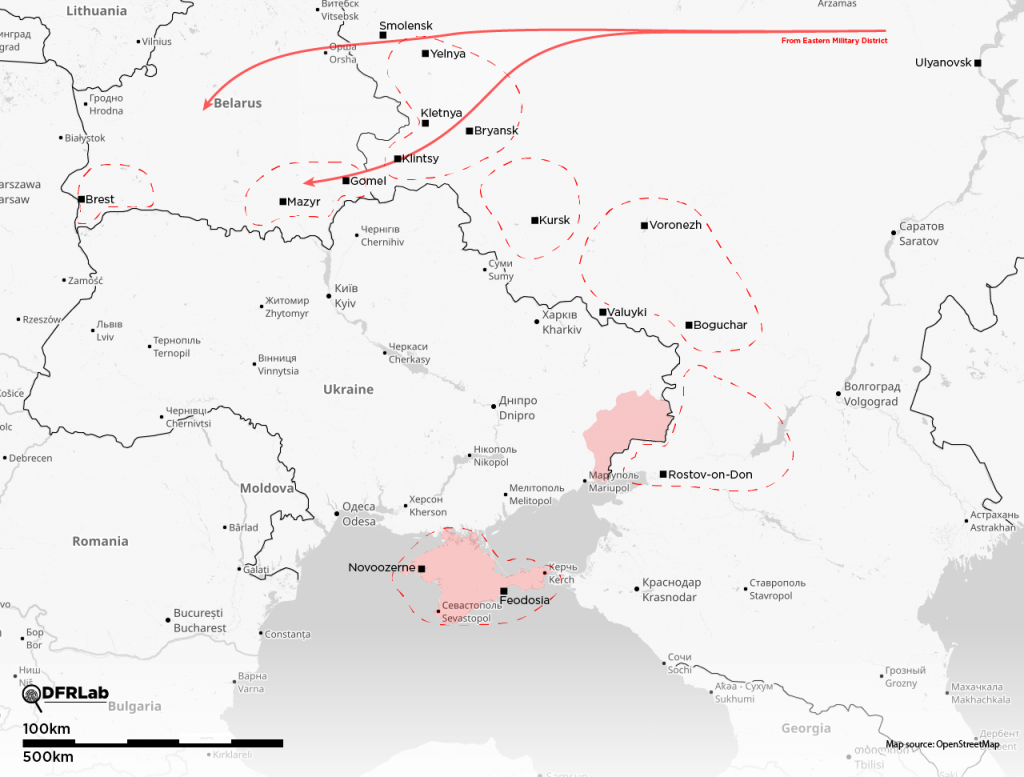

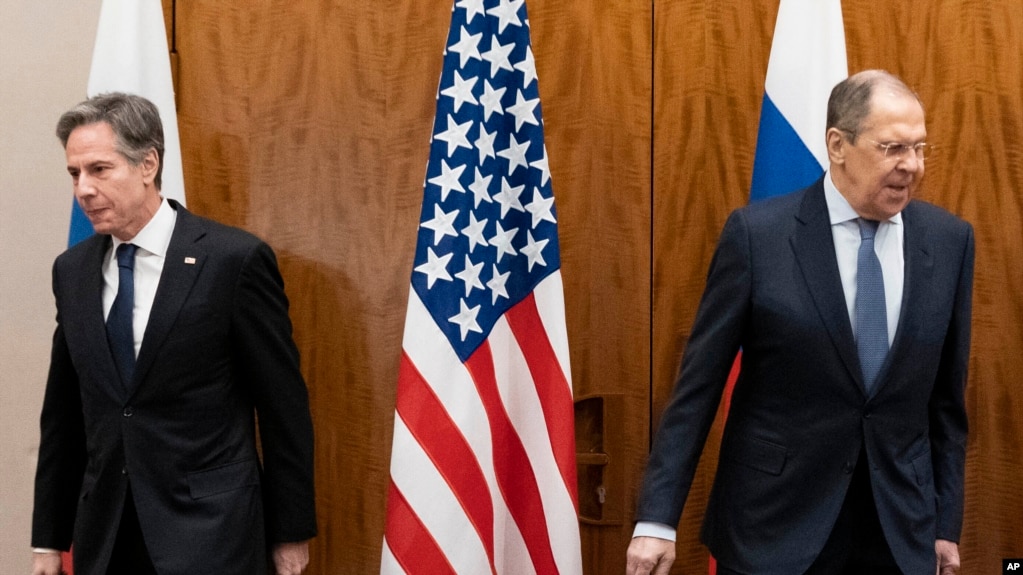
:format(jpeg)/cloudfront-us-east-1.images.arcpublishing.com/tgam/DTDPUQEGIZPGNM2YIDB3P7RSKA.JPG)
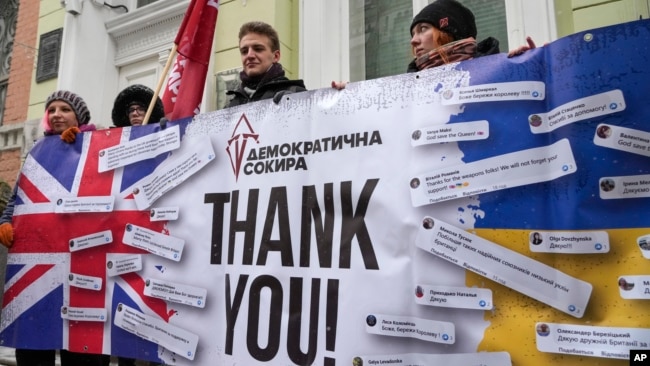
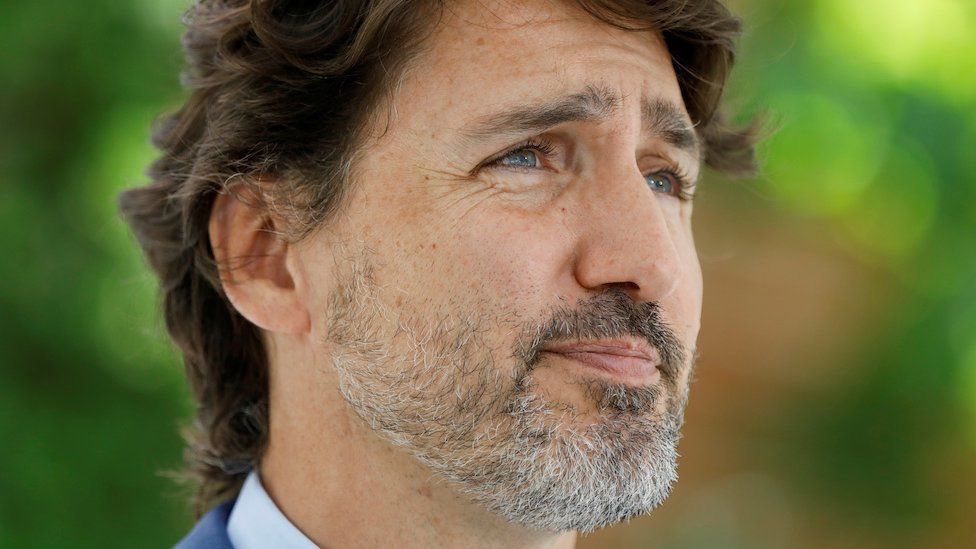
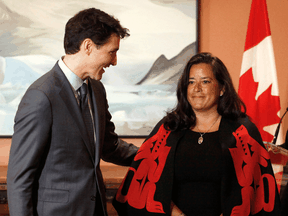
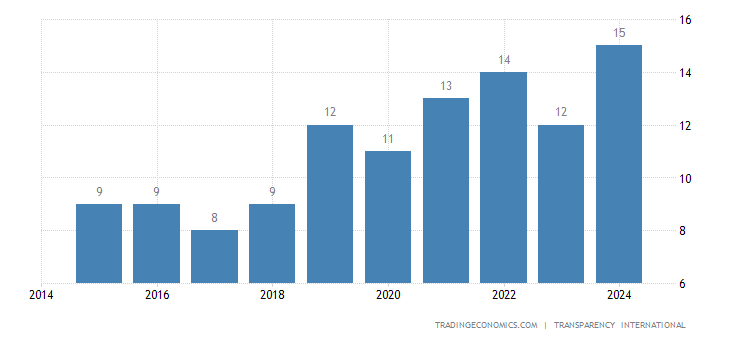
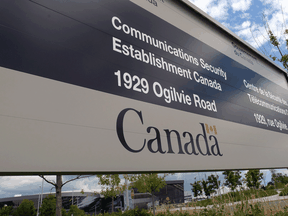
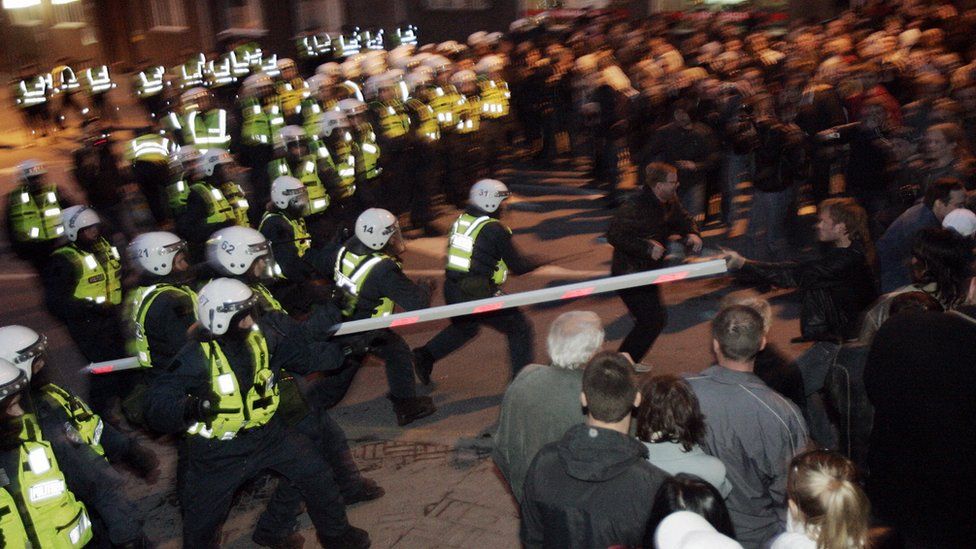
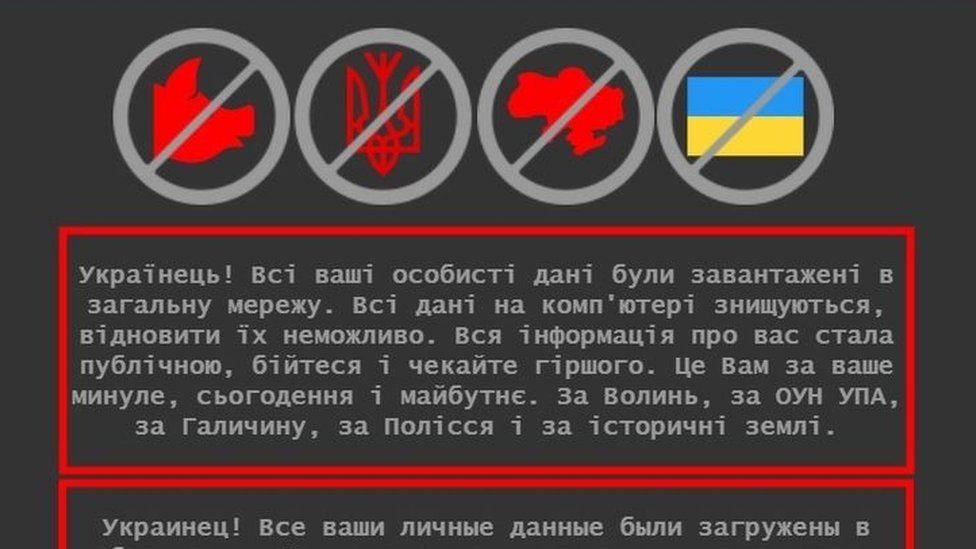
:format(jpeg)/cloudfront-us-east-1.images.arcpublishing.com/tgam/NNJOT7UEOZO6LE2ZJA7BNDYAOQ.jpg)







